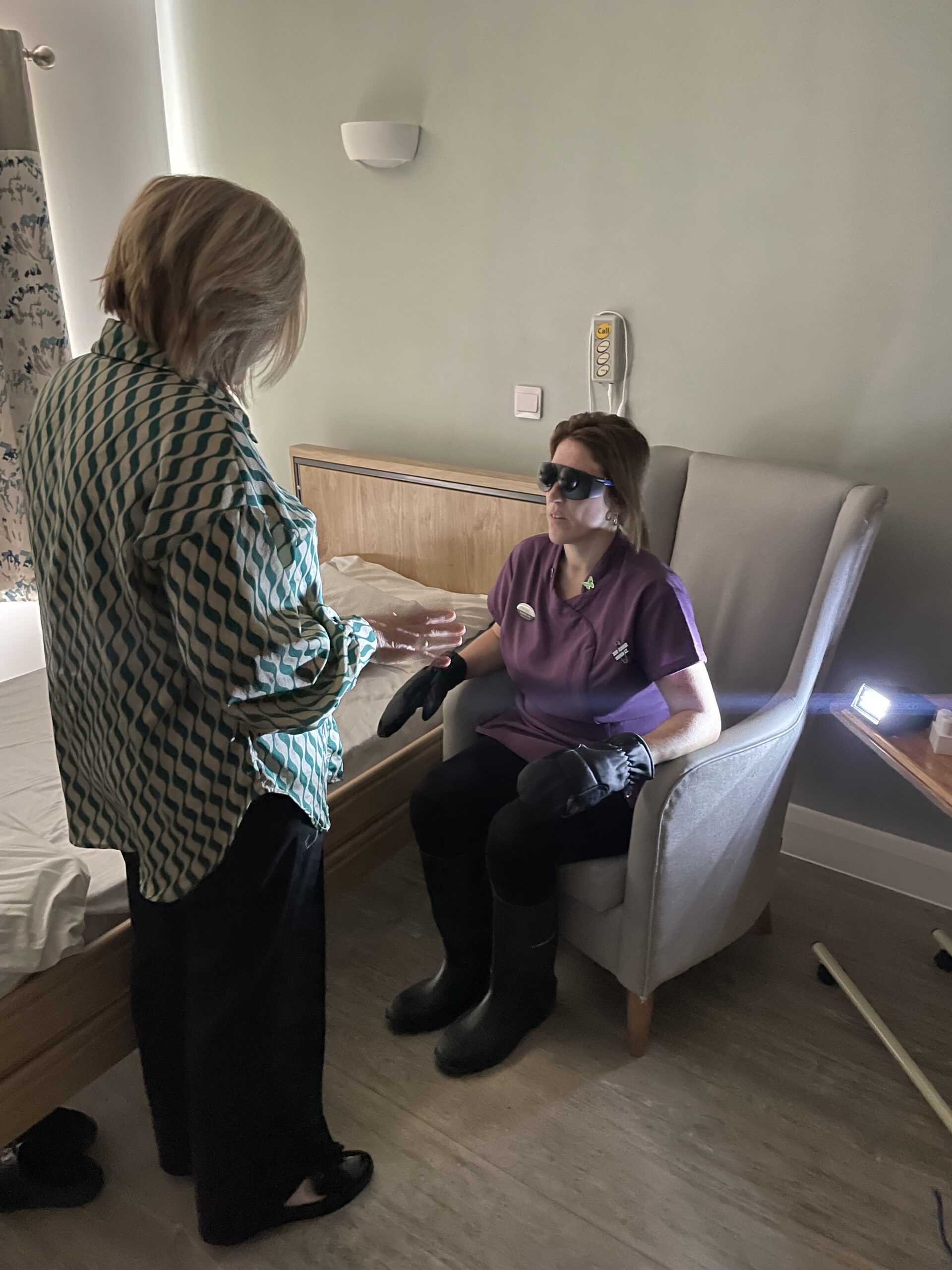The importance of hydration in older people
As the weather begins to warm up, it’s important for all of us to stay well hydrated. The risk of dehydration is greater for older people than those who are younger due to physiological changes that occur as we age. Next time you’re with an older relative or friend, try to encourage them to drink more water to help them stay hydrated.
Why do older people in particular need to stay hydrated?
Dehydration is a serious problem in the elderly, and can put them at risk of dizziness, fainting and even hospitalisation. Falls in the elderly are a serious issue and being dehydrated is known to increase the risk of falling, which can be catastrophic in someone who is already frail. Dehydration can also cause constipation, confusion and a range of other issues, and can put people at risk of pressure sores and skin conditions.
As we age, the amount of water in our bodies diminishes. Between the ages of 20 and 80, it will have reduced by around 15 per cent; that’s about six litres in real terms. With less water in the body, older people can become dehydrated more rapidly than when they were younger. However, despite an increased risk, getting our older loved ones to increase their fluid intake is often more difficult than you might think!
Older people also tend to have a reduced sense of thirst, which can make them reluctant to maintain good levels of fluid intake. Those living with dementia or who have suffered a stroke may also not recognise when they are thirsty, which can put them at a greater risk. Swallowing difficulties, certain types of medication and incontinence have also been known to cause self-inflicted dehydration as the person willingly avoids drinking for whatever reason.
How to encourage better hydration in the elderly
Here at Westgate, we work hard every day to encourage plenty of fluid intake, particularly when the weather is warm. If you’re looking for ways to ensure adequate fluid intake, you can try:
- Offering drinks more frequently: Water is best, but if the person isn’t keen, juice or squash is good too. Remember, cups of tea are nice, but they are a diuretic and can exacerbate problems with dehydration.
- Make sure fluids are available all day: Place a jug of water where the person can easily reach it, or supply water in a sippy cup or drinking flask if they are unable to pour their own drinks.
- Give water when they take their medication: Offer a good drink of water when they take any tablets they are due, rather than just a splash in the bottom of a cup.
- Aim for 1.5l minimum intake when the weather is hot: If you feel they are more at risk of dehydration due to the weather, environmental changes, stuffy atmosphere or because they are taking a new medicine, aim to get them drinking at least a litre and a half over the course of the day.
Increasing the fluid intake of an older person can also be achieved through ‘wet’ type foods, so if none of this works, try offering foods such as pureed fruit, yoghurt, soup and custard. Avoiding alcohol and reducing salt in the diet can also help, as can a reduction in caffeine intake. Helping your loved one to stay hydrated through the summer months will make them feel and look better, so do what you can to get them to drink more.

